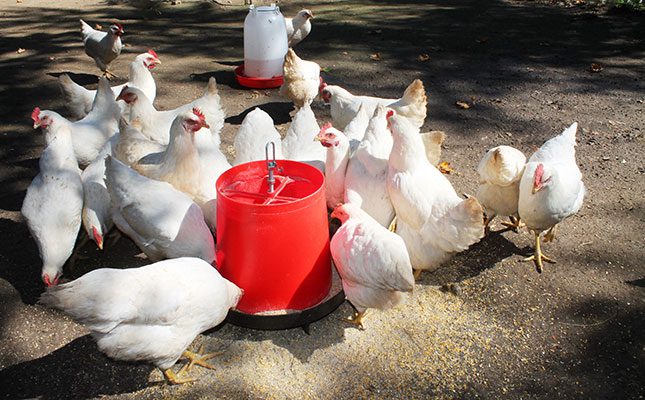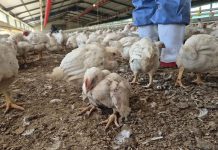
Photo: FW Archive
Kobedi Pilane, CEO of the African Poultry Producers, which forms part of the Black Agricultural Commodities Federation, told Farmer’s Weekly that it was difficult to estimate losses, but the organisation had seen a huge increase in questions about Gumboro on their WhatsApp group, which has over 400 members, over the past few weeks.
He surmised that the questions indicated that farmers were currently struggling with the disease because of the cold weather, and looking for ways to limit losses. Those who suffered losses last year could also be looking for advice to avoid a similar situation this year, he said.
Dr Adriaan Olivier, an ostrich veterinarian, said there could be various reasons besides Gumboro why chickens died when it was cold, ranging from avian influenza to metabolic stress. The latter could occur when farmers tried to save on heating cost by restricting airflow and closing all windows and doors.
Along with this, various other diseases had similar symptoms as Gumboro. “Farmers need an accurate diagnosis. Without it, treatment and prevention efforts will be ineffective,” Olivier said.
According to Zoetis South Africa, Gumboro was a highly contagious viral disease that negatively affected the immunity of chickens. Young chicks were the most susceptible.
Symptoms included a rapid drop in feed and water consumption, depression, slimy diarrhoea, which caused dirty feathers, ruffled features and an unsteady gait, or chicks sitting in a hunched position. There could also be a sudden increase in mortalities, with deaths usually occurring in chicks between three and six weeks old.
Zoetis South Africa said there was no cure for Gumboro, but vitamins, electrolytes and antibiotics could help to treat secondary bacterial infections and to reduce the impact of the disease.
Olivier said that commercial farmers prevented Gumboro outbreaks through the use of vaccines, good biosecurity and hygiene practices. “Emerging and smallholder farmers could get a vaccine programme from the South African Poultry Association and ask the association or the state veterinarian for advice if they experience an outbreak.”
He said the big problem with Gumboro was that the virus was highly resistant and survived for long periods in the environment of chicken houses. Hence, farmers would continue to suffer losses until they had thoroughly cleaned and sanitised the production area.
“The production area has to be cleaned of any organic material, such as bedding or faeces, after which it has to be washed with a detergent (soap), and finally be disinfected at the correct dilution and time. It is good practice to only introduce new chickens to the production area two to four weeks after it had been cleaned and sanitised,” Olivier said.
He granted that this was especially difficult for farmers who kept a mixture of birds at different ages, but not doing so greatly increased the risk of new birds also contracting the disease.
Good biosecurity measures, such as limiting visitors, would further help to prevent the virus from spreading from one production area to another.
With regard to bird flu, Olivier said that high pathogenic avian influenza had wiped out a large number of chickens belonging to smallholder farmers around the border of Gauteng and Mpumalanga.
“It could be that farmers are losing birds due to avian influenza, which also spreads rapidly and is deadly. So, if farmers are uncertain [whether their chickens are infected with Gumboro or bird flu], it would be better to consult the state veterinarian or the South African Poultry Association.”










